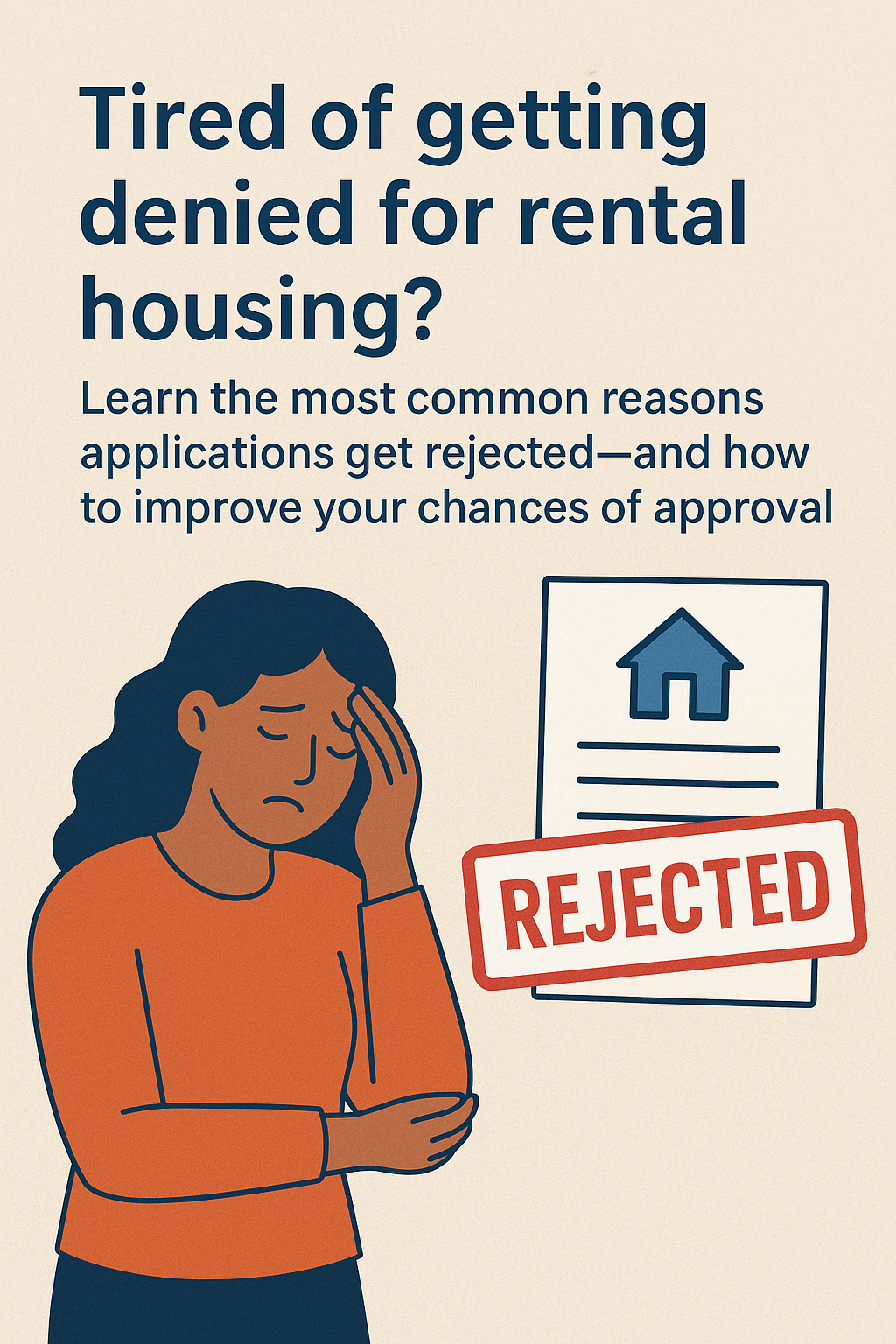Tired of Getting Denied for Rental Housing? Here’s How to Finally Get Approved
Searching for a new rental can be stressful, and nothing stings more than hearing that dreaded word: “Denied.” If you’ve ever had your rental application rejected, you’re not alone—many renters face this roadblock. The good news is that understanding why landlords deny applications (and what you can do to fix it) can drastically improve your chances of approval.
In this guide, we’ll cover:
The most common reasons rental applications get denied
What landlords are really looking for
Practical tips to strengthen your application
How to bounce back after a denial
Let’s dive in.
Why Do Rental Applications Get Denied?
Rental applications can be denied for a variety of reasons, but most rejections fall into a few main categories. Knowing these upfront helps you prepare—and avoid surprises.
1. Poor or Limited Credit History
Landlords use credit reports to gauge whether you’re financially responsible. Late payments, high debt, or a very low credit score can signal risk. Even if you’re new to credit and don’t have much history, landlords may hesitate because they don’t have enough information to trust your payment reliability.
2. Insufficient Income
A standard rule of thumb is that your monthly income should be at least 2.5 to 3 times the rent. If you don’t meet this threshold, the landlord may worry you won’t be able to keep up with payments.
3. Past Evictions
Unfortunately, past evictions are a red flag for most landlords. Even if your situation has improved, an eviction record makes approval much harder without additional documentation or references.
4. Negative Rental References
Landlords often call previous landlords. If they hear about late rent payments, property damage, or lease violations, your application can quickly end up in the rejection pile.
5. Incomplete or Incorrect Applications
Something as simple as a missing pay stub, incomplete background check authorization, or typos in your application can result in automatic rejection. Making sure you meet the qualifications for the rental you are interested in. Attention to detail matters.
What Landlords Look For in Tenants
To understand how to improve your chances, it helps to think like a landlord. Most are looking for tenants who are:
Financially stable (able to pay rent consistently on time)
Responsible (take care of the property and follow lease rules)
Reliable communicators (easy to reach if issues arise)
Long-term renters (reduces turnover and saves landlords money)
When your application shows you meet these expectations, you become a much more attractive tenant.
How to Improve Your Chances of Rental Approval
If you’ve faced denials in the past, don’t get discouraged. Here are actionable steps you can take to strengthen your next rental application:
1. Check and Improve Your Credit Before Applying
Review your free credit report for errors.
Pay down outstanding debts when possible.
Set up automatic bill payments to avoid late marks.
Even small improvements can boost your score and confidence.
2. Show Strong Proof of Income
Provide recent pay stubs or bank statements.
If self-employed, offer tax returns or client contracts.
Consider applying with a co-signer if your income doesn’t meet requirements.
3. Ensure you have completed the application
Did you read over the qualifications first? If you did and you know you can meet those qualification then the next step is making sure you return the application completely filled out. Ensuring you have included all required documents, including the fee if there is one. Asking questions before you turn the application in.
4. Gather Solid References
Ask previous landlords, employers, or even community leaders to provide written references. Positive words about your reliability can help balance out weaker areas of your application.
5. Be Upfront About Past Issues
If you have an eviction, poor credit, or a gap in rental history, explain it honestly in a cover letter with your application. Owning your mistakes and showing how you’ve improved demonstrates maturity.
What to Do if Your Application Is Denied
Getting denied doesn’t mean you’re out of options. Here’s how to move forward:
Ask why you were denied: Landlords often provide a reason, especially if it’s related to credit or background checks.
Address the issue: Work on fixing credit errors, boosting income, or collecting better references before your next application.
Broaden your search: Some smaller landlords may be more flexible than large property management companies.
Consider a roommate: Splitting rent with another person can strengthen your combined application.
Final Thoughts
Rental denials are frustrating—but they’re also an opportunity to learn and prepare better for the next application. By understanding the top reasons renters get denied and taking steps to present yourself as a strong, reliable tenant, you’ll dramatically improve your chances of approval.
Remember: one “no” doesn’t define your rental journey. With preparation and persistence, your next application could be the one that gets the green light.

